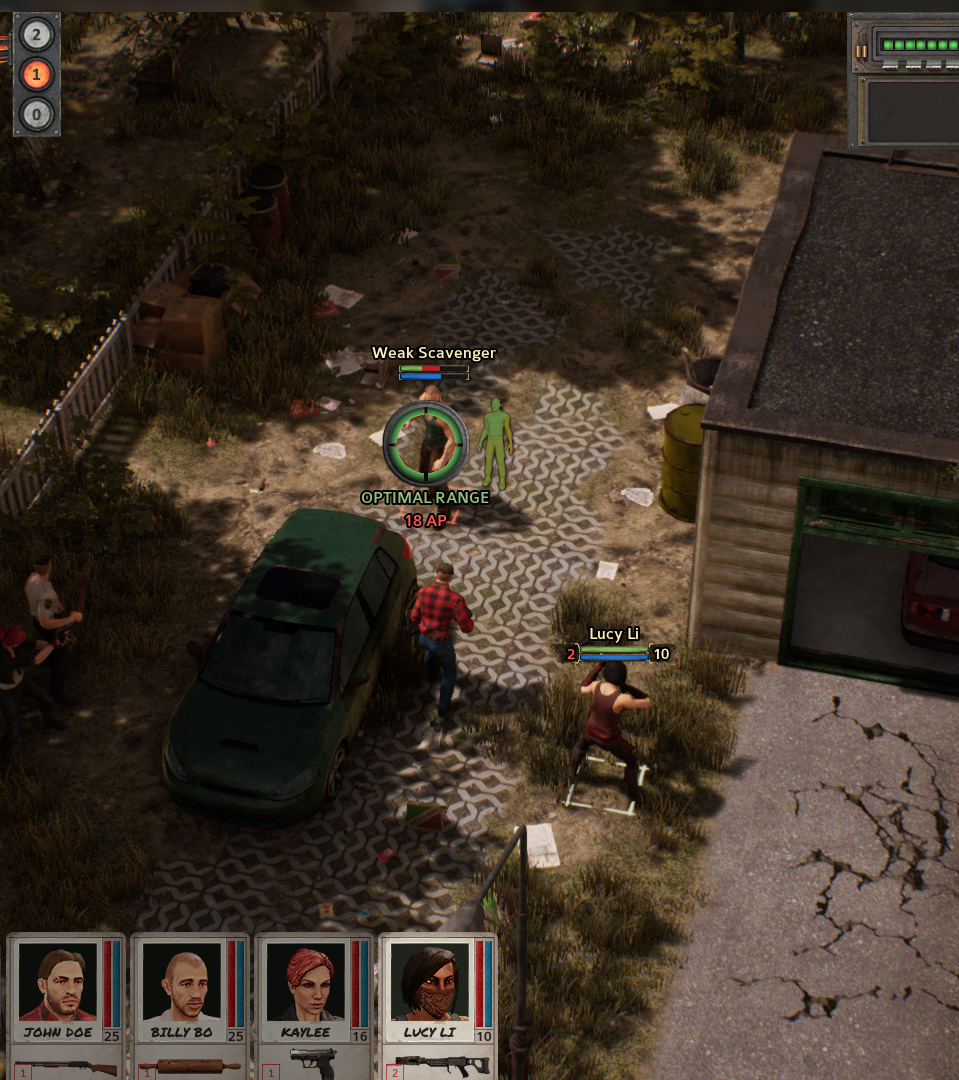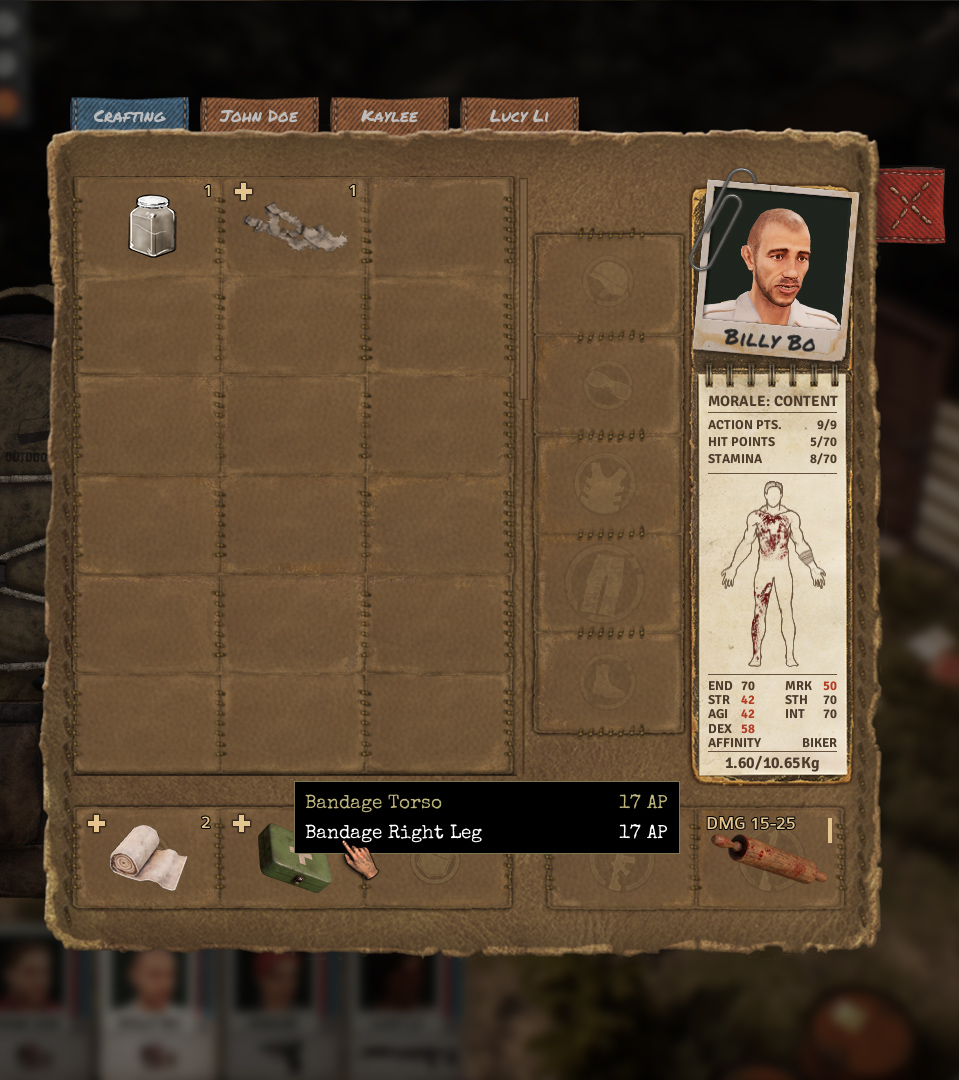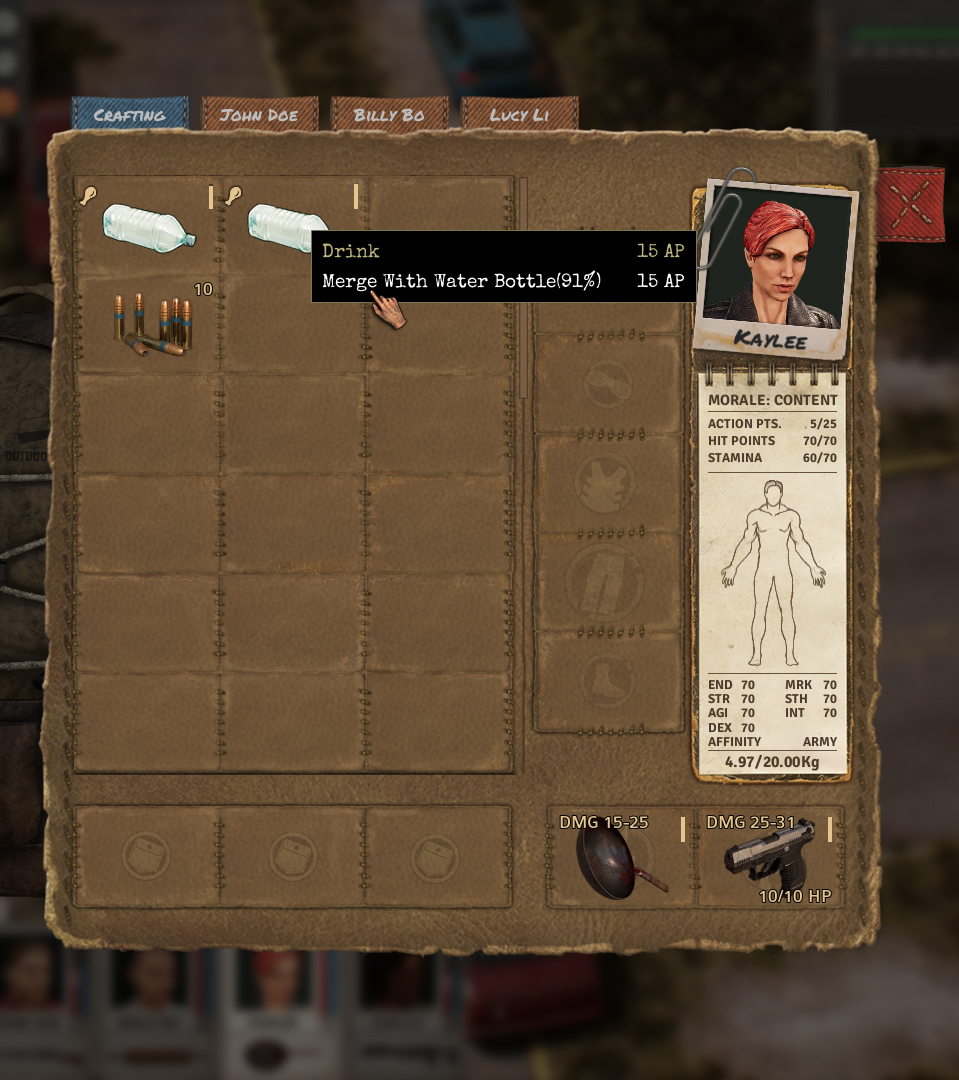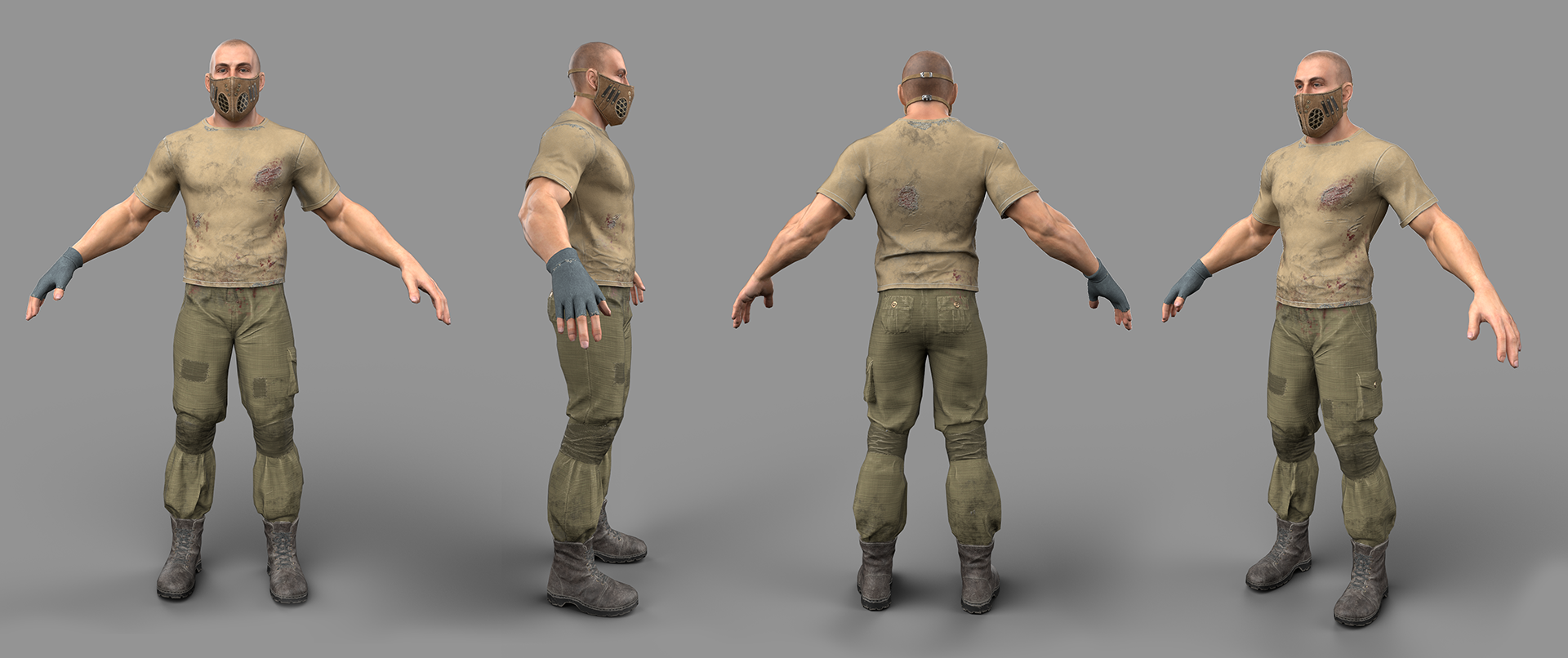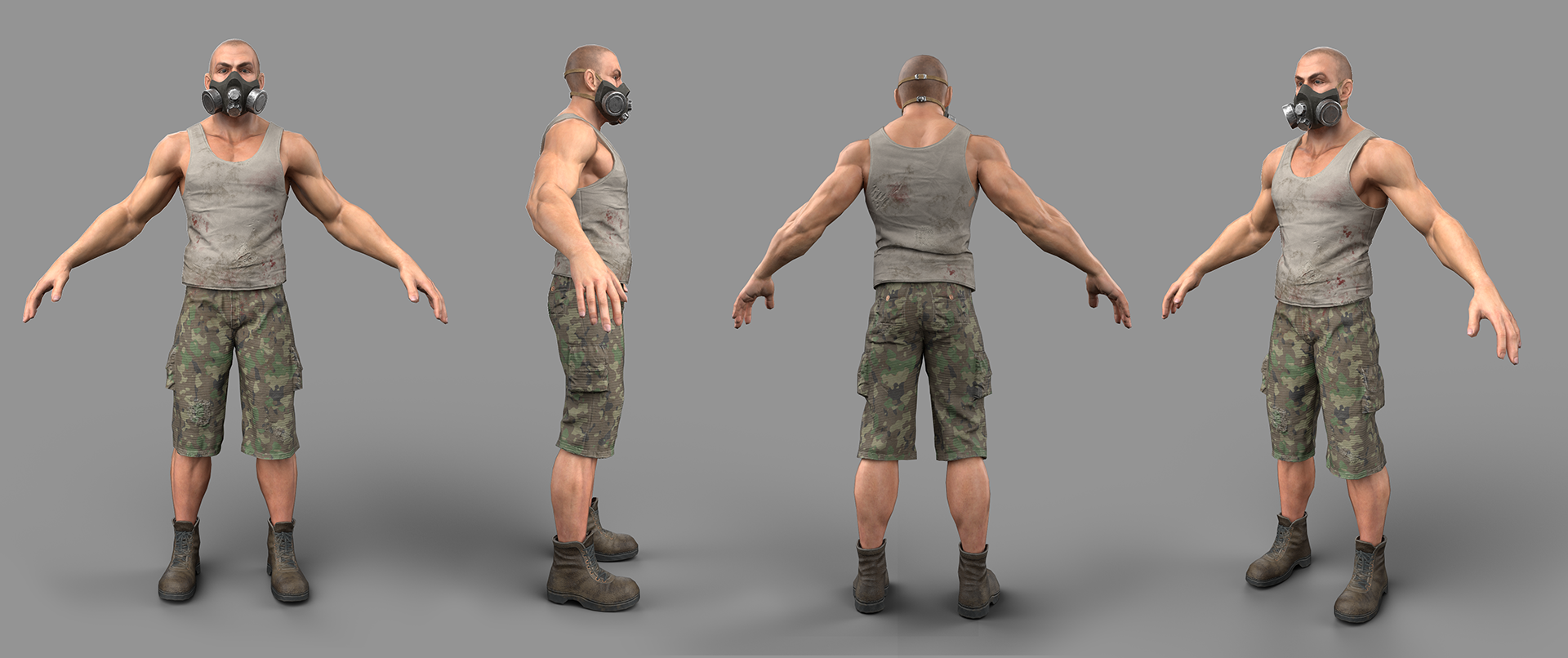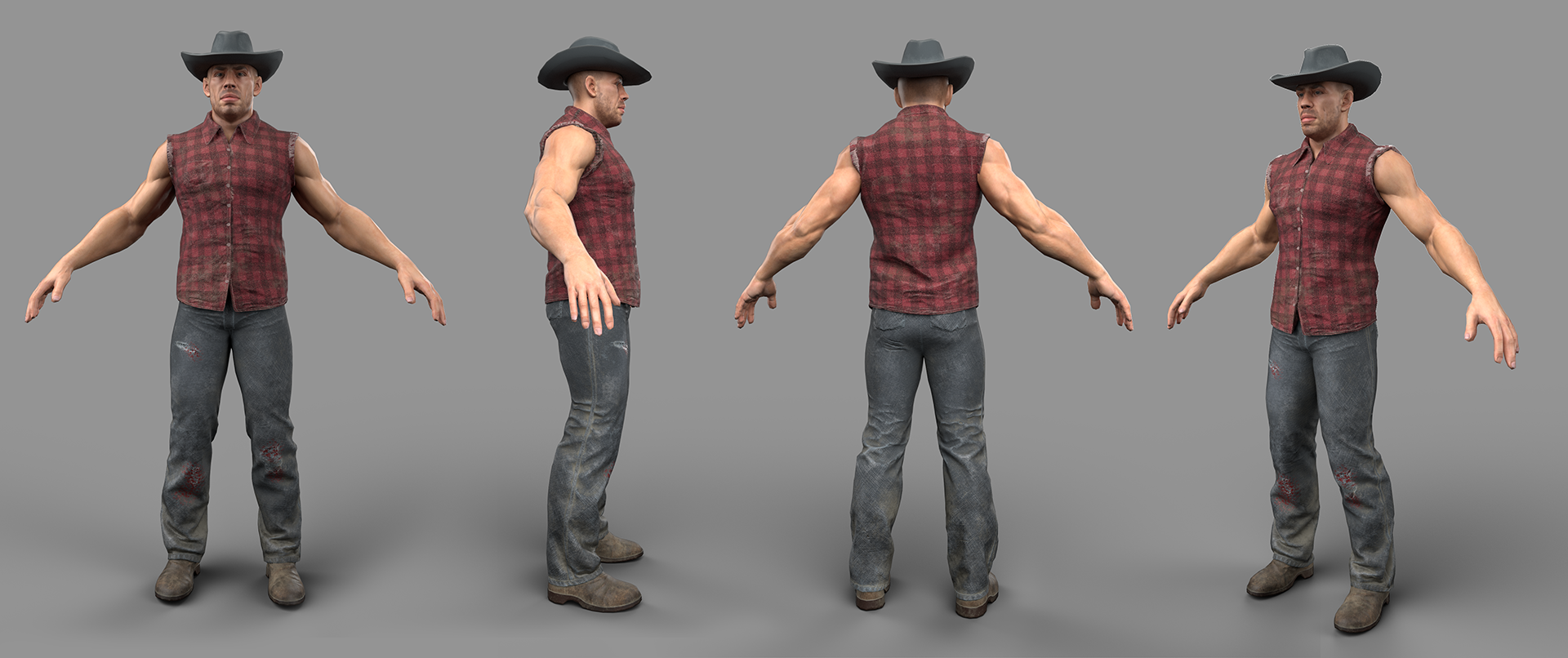Immolation
Fire deals damage over time to exposed body parts. Walking through fire will result, for example, in burns to the feet. But once you catch fire, immolation will spread to adjacent body parts and can result in a very unpleasant death. Even if you walk away from the fire, immolation will persist and keep your character in a “disabled” state for a short period of time, unable to do much beyond desperately trying to extinguish the flames.
Crippling Effects & Damage Types
When their HP meter drops below a certain point, all body parts generate “crippling” penalties. Crippled hands will lower your dexterity, gravely wounded legs will drop your agility, etc.
Body armor will come with different protection for each type of damage. Possible types of damage are:
- Ballistic (kinetic damage done by bullets and arrows)
- Stab/Slash (bladed, pointed stuff that makes you bleed profusely)
- Blunt (weapons that will cause less bleeding, but generate increased pain)
- Blast (from stuff that goes boom, like grenades)
- Fire (damage over time, causes character to enter “disabled” temporary state, can spread)
- Bite (one of the zombie specific attacks, WIP, will tie into infection and other effects)
- Tear Gas (WIP, hits stamina and causes exhaustion, ignores armor, more efficient in closed spaces)
- Toxic Gas (WIP, hits global HP directly, ignores armor, dissipates faster outdoors than indoors)
Stamina, Pain and Exhaustion
Stamina is a particularly important trait because it affects maximum Action Points. You cannot directly “heal” your stamina, but you can deal with what is draining it, aka Pain and Exhaustion. As expected, if you neglect it, you will pass out when it reaches zero (the faint state is WIP).
Pain is generated by any damage taken, same as life loss & bleeding. Different types of weapons generate different amounts of pain, with blunt weapons being the most effective. Pain goes away with time but can also be removed/numbed using various substances (meds, booze, etc.). When in pain, a character will suffer a penalty to stamina and other attributes.
Melee will consume stamina for both defense (dodging) and attack (wielding). Both activities will increase
exhaustion. Heavy weapons will tire weak characters faster so unless you’re a big Russian bear called Dmitry, leave that sledgehammer alone. You will recover from exhaustion in time unless you’re sprinting around or still in melee combat. It can also be compensated by drinking water, fizzy drinks, and other refreshments. When exhausted, a character will suffer a penalty to stamina and other attributes.
Items: Stacks vs Containers
We mentioned medical kits and bandages behave differently in inventory. This goes for every other common item too. Basic items will come in stacks that can be divided as you wish and moved in piles. A good example would be a stack of bullets. Containers, like medical kits, bottles, gas canisters, etc. have a meter showing their “fill” condition and while not stackable, they can be merged into an item of the same type to save space. The above rules do not apply to weapons so no "merging" two bad guns to make a good one for you (we have other solutions to that, way more entertaining).
New Enemy Types
The art team is working on new enemies since the basic civilian refugees don’t look able to put up much of a fight. So, they came up with some “muscle” types that are going to give you more of a challenge and look badass while doing so.
UNTIL NEXT TIME!
PS: Thank you for the continued support and if you have made it this far down the text, why not add Urban Strife to your wishlist? And get more people to do it, it really helps!


































